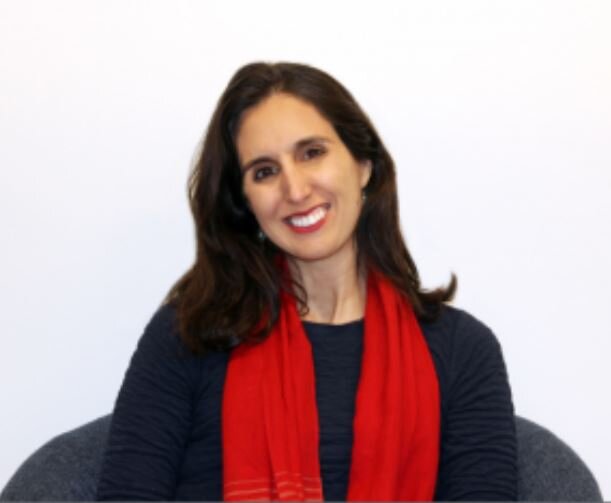The Greater Washington Community Foundation is proud to partner with Montgomery County Health and Human Services, the Montgomery County Food Council, and the Healthcare Initiative Foundation to provide nonprofit food assistance providers with funding to support programmatic operations. The full release is available below.
Montgomery County Food Assistance Provider Capacity Building Grants Awarded to 28 Community Organizations
For Immediate Release: Monday, August 17, 2020
Montgomery County has awarded $1,126,100 to 28 local food assistance providers to improve their infrastructure and expand their capacity to provide food access to hard-to-reach communities in Montgomery County during the response to and recovery from the COVID-19 pandemic. This program was funded by the Federal CARES Act as appropriated by the County Executive and Montgomery County Council, the Community Food Rescue mini-grants program, and the newly launched Food Security Fund at the Greater Washington Community Foundation.
The COVID-19 Emergency Food Assistance Provider Capacity Building Grant is a partnership between the Montgomery County Department of Health and Human Services (DHHS), the Montgomery County Food Council (MCFC), the Healthcare Initiative Foundation (HIF), and the Greater Washington Community Foundation (The Community Foundation). The County’s Food Security Task Force, formed by the County's Office of Emergency Management and Homeland Security (OEMHS), reviewed and determined all grant awards. The HIF and The Community Foundation are the fiscal agents for the program and will award the money.
These grant awards will support community nonprofit purchases of refrigerators and freezers, shelving and space enhancements, vehicles, forklifts, hand trucks, computers and software, as well as repairs to existing infrastructure. Funded investments will directly expand these organizations’ ability to store and transport larger quantities of shelf-stable and cold-stored food and are estimated to increase community-wide capacity for food assistance distribution and delivery to over 31,000 households.
“I am proud to be part of a community where our nonprofit and faith-based organizations work tirelessly to ensure our residents have access to nutritious and culturally appropriate food, especially during this national pandemic,” said County Executive Marc Elrich. “Providing funding to help these organizations improve their infrastructure and increase their capacity to feed more residents is money well spent.”
Special consideration was given to organizations who formed partnerships to better serve the community and provide culturally diverse food access services. Despite funding limitations more than half of the applications were awarded full or partial funding. As the County’s food security response to the pandemic continues, it is anticipated that additional funds will be made available to further support initiatives that address the significant food security needs of our community.
“Food insecurity is currently being experienced by more residents in our community than ever before,” said County Council President Sidney Katz. “So many of our neighbors are feeling the instability caused by the health crisis in so many ways. It is incumbent upon us to provide culturally appropriate food to those in need and these funds will do just that. I want to thank all of the nonprofit and faith-based organizations who are forging partnerships to reach out to the communities hardest hit by the pandemic.”
Nonprofit organizations were eligible to apply for up to $85,000. The organizations receiving grants, ranging from $1,075 to $85,000, are:
Adventist Community Services of Greater Washington, Inc.
American Diversity Group
Bethesda Cares
Caribbean Help Center, Inc
Chinese Culture and Community Service Center, Inc.
Clifton Park Baptist Church
Damascus HELP Inc.
Guru Gobind Singh Foundation
Indonesian American Association
Islamic Center of Maryland
Kingdom Fellowship African Methodist Episcopal Church
Kings & Priests Court International Ministries Inc.
Liberty Grove United Methodist Church
Manna Food Center
Meals on Wheels of Takoma Park and Silver Spring
Montgomery County Muslim Foundation
Nourish Now Inc
Rainbow Community Development Center
Shepherd's Table
Small Things Matter
So What Else, Inc.
Southern Bethany Baptist Church
Camillus Church Food Pantry
The Living Legends Awards for Service to Humanity
The Salvation Army
Up 2 Us Foundation
Vietnamese Americans Services, Inc.
Women Who Care Ministries
DHHS, along with Montgomery County Public Schools, MCFC, and a network of over 110 local food assistance providers and community partners have been working during the COVID-19 pandemic to address the dramatically increased need for food assistance across the county. To address food insecurity and plan for a greater need, OEMHS created the Food Security Task Force, made up of County staff, community partners and food assistance recipients to create and implement a comprehensive and innovative Food Security Response Strategy.
Montgomery County Government recently partnered with The Community Foundation to launch the Food Security Fund to galvanize private sector and individual support of food access initiatives in the County in response to the COVID-19 crisis. Visit the Food Security Fund website to learn more and contribute.
For the latest COVID-19 updates, visit the County’s COVID-19 website and follow Montgomery County on Facebook @MontgomeryCountyInfo and Twitter @MontgomeryCoMD.
Put the “count” in Montgomery County! Be sure to complete the Census online, by phone, or by mail. It’s safe, confidential, easy, and important. #2020Census #EveryoneCountsMCMD
# # #
Release ID: 20-443
Media Contact: Mark Hodge 240-777-6507





















